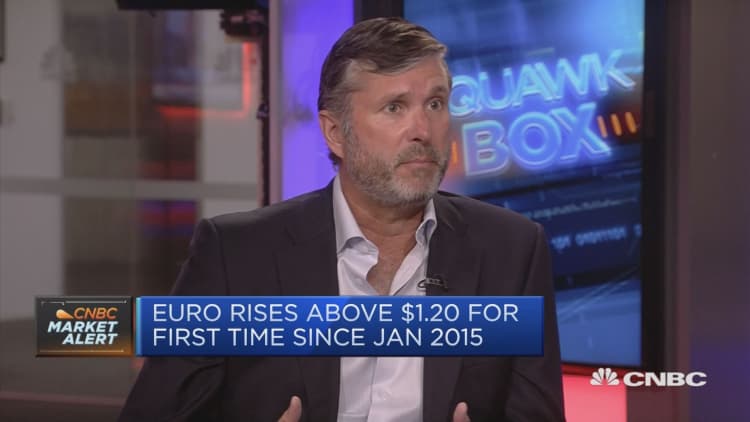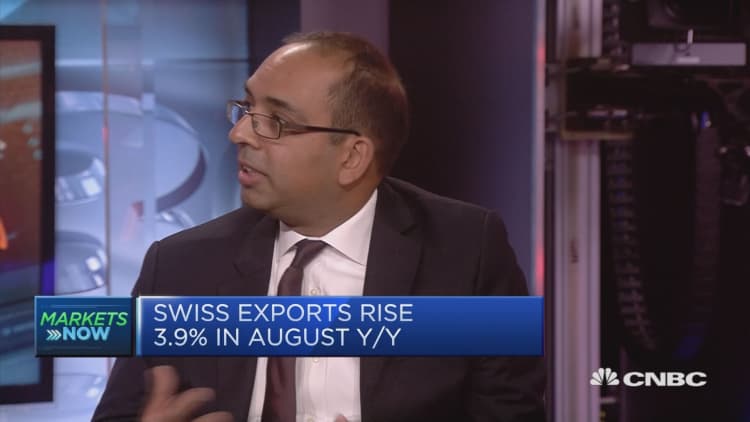
The CEO of a U.K.-based wealth management firm has warned that an unruly end to monetary stimulus from global central banks could lead to pensioners and retail customers suffering the biggest financial crisis of their lifetimes.
Brian Raven, group chief executive at Tavistock Investments, believes that bond markets will be the source of the problem and are primed for a sharp reversal.
"This is the biggest financial crisis of our lifetime, because it affects the average person," Raven told CNBC over the phone. Tavistock is focused on the U.K. but Raven said the problem could be felt more broadly around the world. He argued that bond markets are in a state "never seen before" which could soon trigger a financial shock bigger than in 2008.

Bonds — pieces of paper that companies, governments and banks sell to raise money — have seen three decades of price gains and are perceived to be a safe haven in times of economic stress. They also traditionally perform poorly in times of rising inflation. In the last 10 years, central banks have been busy buying up bonds in an effort to boost the global economy and increase lending. This has further accentuated the move higher for bond prices and many economists now believe the market has become distorted.
The more conservative central banks that have been skeptical of quantitative easing have long warned that long periods of low interest rates can sow the seeds of the next crisis.Jan RandolphDirector of sovereign risk at IHS Markit
With central banks preparing to put an end to ultra-loose monetary stimulus, and with inflation recently seeing a pickup, there are concerns that bonds could lose value quickly in a market that is not very liquid. There are also concerns that bondholders aren't fully aware of the risks.
"The more conservative central banks ( e.g. Bundesbank ) that have been skeptical of quantitative easing have long warned that long periods of low interest rates can sow the seeds of the next crisis by smothering relative prices in the financial markets — but it is difficult to tell where ahead of time because of the 'fog' created," Jan Randolph, director of sovereign risk at IHS Markit, told CNBC via email.
"There is a risk of a sharp rebound in prices as monetary policies tighten and liquidity problems if investors stampede out these more risky markets when risks start to crystallize," he added.

While there's been many gloomy forecasts for the bond market, not everyone agrees that they'll definitely see significant losses as central banks reduce their bond-buying programs. Mike Bell, a global market strategist at JPMorgan Asset Management, told CNBC Monday that this monetary tightening creates a risk but believes that the recent economic recovery should be enough to offset the impacts of lower bond prices.
"Eventually tighter monetary policy could tip the U.S. economy into recession, but we believe that the economy and equity markets can withstand at least the next year's worth of monetary policy tightening," he said.
"We certainly don't expect the next bear (negative) market to be as bad as the financial crisis in 2008 as banks are much better capitalized than they were in 2008. We therefore expect the next bear market to be a more classic recession rather than a full-blown financial crisis," he added.
Central banks are unlikely to change their strategy and so investors will be likely face higher interest rates and higher inflation. Therefore, Tavistock's Raven told CNBC that investors should adapt and diversify their investments. Bonds with short durations, high-yielding bonds and emerging market bonds are all potential options for investors, according to Raven.





